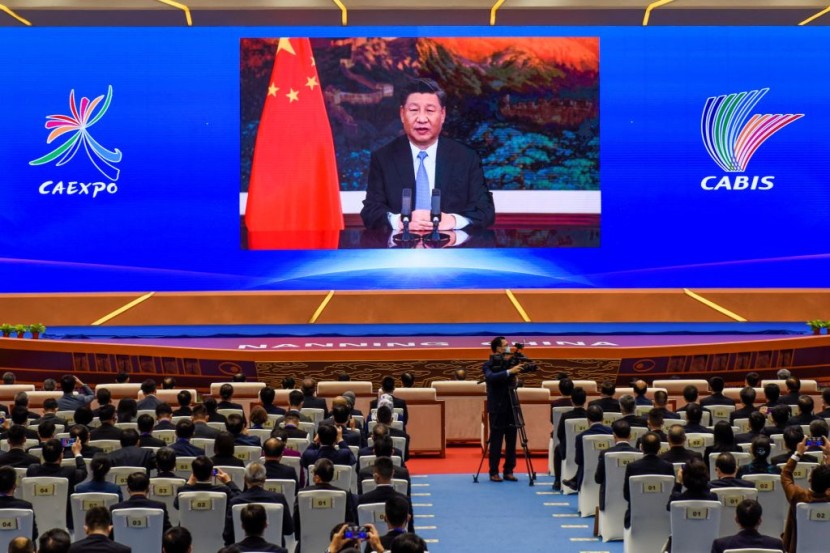
Chinese President Xi Jinping reassured that his country is not trying to assert its dominance on the world stage during a Monday summit attended by leaders of the 10-country Association of Southeast Asian Nations (ASEAN) despite claiming the majority of the South China Sea as its territory.
During his speech, the Chinese leader said that Beijing would not "bully" its smaller regional neighbors amid rising tension over territorial waters. China's claims of the seas have put Beijing against several other Southeast Asian countries and also raised the alarm from Washington to Tokyo.
China Is Not Seeking "Hegemony"
However, Xi said that China was not seeking "hegemony," nor did it want to take advantage of its power and size to force smaller nations into submission. He added that Beijing will work with ASEAN to eliminate what he considered "interference."
The Chinese president was quoted as saying that China "was, is, and will always be a good neighbor, good friend, and good partner of ASEAN," by the state-run media. The situation comes as the Asian country has asserted sovereignty over the South China Sea that has pitted itself against other Southeast Asian countries, including the Philippines and Vietnam, Reuters reported.
On Thursday, Philippine authorities condemned "in strongest terms" the actions of three Chinese coast guard vessels that allegedly blocked its supply boats and used a water cannon to spray the vessels. The ships were reportedly heading towards a Philippine-occupied atoll in the South China Sea.
The United States on Friday considered China's actions as "dangerous, provocative, and unjustified. American officials warned Beijing that an armed attack on Philippine vessels would result in the invocation of US mutual defense commitments.
"The United States strongly believes that PRC actions asserting its expansive and unlawful South China Sea maritime claims undermine peace and security in the region," said State Department spokesman Ned Price, using the initials for the People's Republic of China, the Straits Times reported.
Highly Contested Territorial Waters
In recent times, China has continued to strengthen its presence in the Southeast China Sea, which is home to crucial shipping routes, fish supply, and undersea oil and gas deposits. Beijing has started the construction of airstrips and other features on islands created by piling sand and concrete atop coral reefs.
China has a powerful navy, coast guard, and maritime militia that have blocked moves by regional countries to exploit resources within the highly contested waters. Beijing has also objected to operations by the United States and other foreign militaries in the area.
For years, ASEAN and China have tried to negotiate a code of conduct for handling matters in the territorial waters. However, recent incidents suggest that the talks have made little progress or impact in how Xi acts on international issues.
Despite its overwhelming authority and power, China continues to be a crucial market for Southeast Asian countries and is a significant source of investment. ASEAN has preferred to avoid conflict with Beijing for this very reason. Additionally, Xi's government has strong ties with several ASEAN members, including Cambodia and Laos, The Hindu reported.
Related Article: Blinken Says US Pledges To Support Africa Financially With Absence of Unsustainable Debt To Counter China's Influence
© 2026 HNGN, All rights reserved. Do not reproduce without permission.








